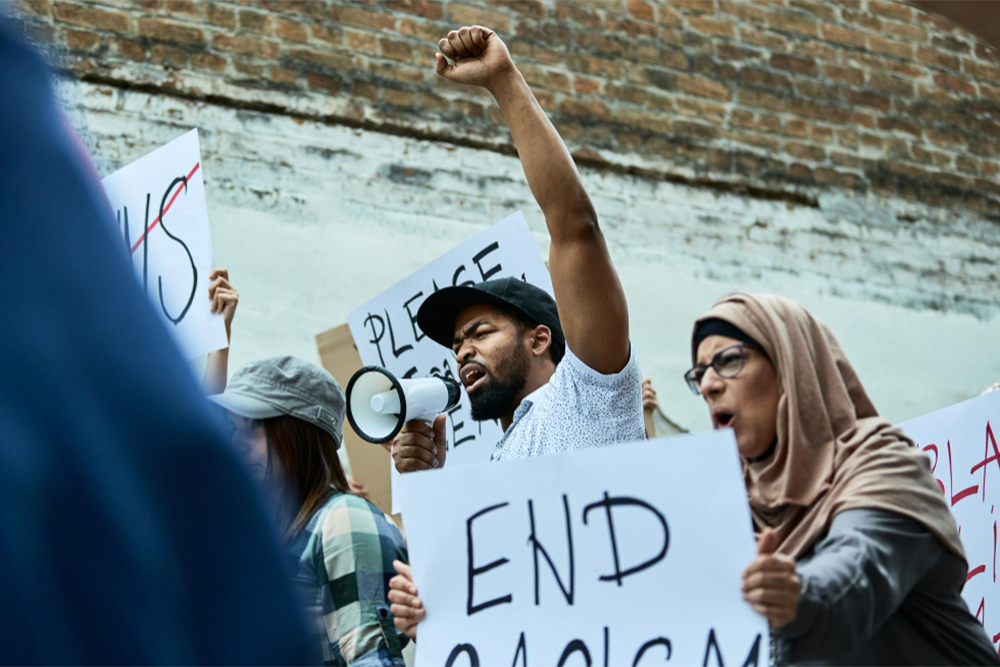


Exercising your right to protest is a fundamental part of American democracy. While most protests are peaceful, there's always a risk of arrest, even if you haven't done anything wrong. Knowing what to do in that situation can make a significant difference in the outcome.
This guide will walk you through the essential steps to take if you find yourself arrested at a protest. We’ll cover your rights, how to act during the arrest, and what to expect afterward. Understanding this process can help you stay calm and protect yourself legally.
Before heading to a protest, it's crucial to understand your rights. The First Amendment protects your right to peaceful assembly, but there are limits. Protests must remain non-violent, and you must obey lawful orders from police, such as staying off private property or keeping streets clear.
If police declare a protest unlawful, you must leave the area to avoid arrest. However, you still have rights even if an arrest occurs. You have the right to remain silent and the right to an attorney. You are not required to answer questions about your immigration status. Memorizing a lawyer's phone number or having it written on your body in permanent marker is a smart precaution.
Being arrested can be a stressful and confusing experience. The way you handle the situation can have a major impact on your case.
The most important thing to do is to stay calm. Do not resist arrest, even if you believe it is unjust. Resisting can lead to additional charges, like "resisting an officer without violence," and may result in the police using force. Keep your hands visible and comply with the officer's instructions.
You have the right to remain silent. You should clearly state, "I am going to remain silent. I want to speak with a lawyer." After saying this, do not answer any further questions. Police are trained to get information from you, and anything you say can be used against you. The only information you are required to provide is your name and address.
Police may ask to search your person or your belongings. You can refuse by saying, "I do not consent to a search." If they search you anyway, do not physically resist. Your refusal to consent can be important later in court. If police have a warrant or probable cause, they can legally search you without your consent, but you should still make your objection clear.
As soon as you are arrested, ask for a lawyer. Repeat this request as often as necessary. Do not speak to the police, detectives, or anyone else about your case without a lawyer present. Police must stop questioning you once you have requested legal counsel.
Once you are taken into custody, you will go through a booking process at the police station. Here’s what typically happens:
During this process, continue to exercise your right to remain silent. Do not discuss the protest or the reasons for your arrest with officers or other detainees.
After booking, the next step is securing your release, which often involves posting bail. Bail is a financial agreement that ensures you will appear for your court dates.
For minor offenses common in protest arrests, such as disorderly conduct or failure to disperse, there is often a standard bail amount set by a "bond schedule." This allows for a quicker release. If not, you may need to wait for a judge to set bail at your first court appearance, which usually happens within 24 hours of arrest. The judge will consider factors like the nature of the alleged offense, your criminal history, and your ties to the community.
Posting the full bail amount can be financially challenging. This is where a bail bondsman in Orlando, FL, can be a crucial ally. For a non-refundable fee—typically 10% of the total bail amount—a bail bonds company will post the entire bail for you.
Using a bail bondsman allows you to get out of jail quickly without having to liquidate assets or tie up a large sum of money. The process is straightforward: you or a loved one contacts the bail bondsman, provides them with the necessary information about the arrest, and pays the fee. The bondsman then handles the paperwork and posts the bond with the court.
Being arrested at a protest can be overwhelming, but knowing your rights and the steps to take can empower you. Stay calm, assert your rights clearly, and don't speak without a lawyer. After the arrest, focus on securing your release and preparing for your legal case.
If you or someone you know needs a trusted bail bondsman in Orlando, FL, our team is here to help. At Mike Snapp Bail Bonds, we provide fast, confidential, and professional service to help you navigate the bail process and get back home. Contact us today for more information and support.